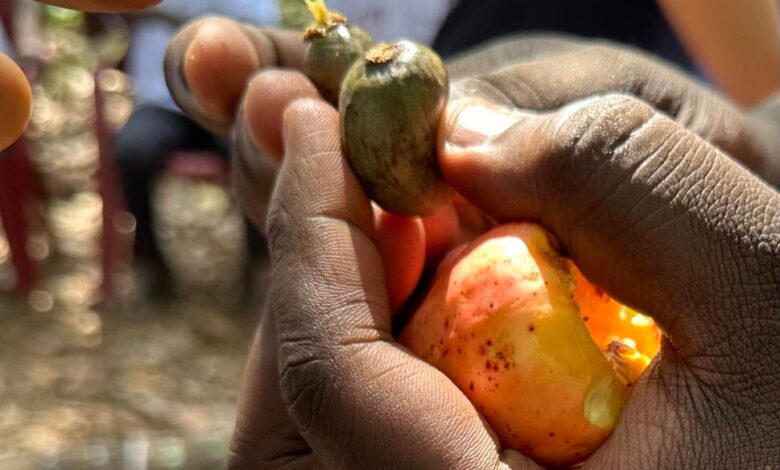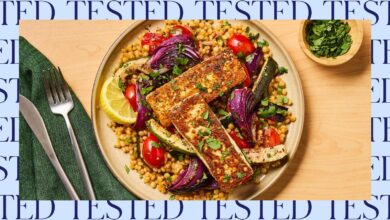California’s Forager Invests In Cashew Farmers In Côte D’Ivoire

📝 usncan Note: California’s Forager Invests In Cashew Farmers In Côte D’Ivoire
Disclaimer: This content has been prepared based on currently trending topics to increase your awareness.
CA-based Forager Project Supports Cashew Farmers in West Africa
Forager Project
This week, the Forager Project, a plant-based food company based in California, announced the Cashew Project—a multi-year initiative to reshape its supply chain in West Africa and, the company hopes, improve the lives of the people who stand at the beginning of it.
“We’ve always believed cashews are our hero ingredient,” says John-Charles Hanley, cofounder and president of Forager Project. “But when you commit to an ingredient, you commit to the people and places that produce it. Cashews are not all the same — and neither are the circumstances of the farmers who grow them.”
Hanley co-founded Forager Project 13 years ago with his stepfather, Stephen Williamson, who had previously run Odwalla, the juice brand. Forager began as a cold-pressed juice company but soon transitioned to nut milks and yogurt, building its own vertically integrated supply chain. It’s sold in major retailers across the country, such as Sprouts, Natural Grocers, Whole Foods, Walmart, Safeway, and more.
The Cashew Project focuses on Côte d’Ivoire, the world’s largest exporter of raw cashews. The country produces more than 40 percent of the global supply, much of it shipped to processing facilities in Asia before eventually reaching grocery shelves in the U.S. and Europe. This long, fragmented chain leaves many Ivorian farmers with thin margins despite bearing the riskiest part of the process.
Through a partnership with Olam Food Ingredients (OFI) and GIZ, Forager plans to invest directly in farming communities, starting with organic certification training, support for women farmers seeking financial independence, and education on sustainable—or regenerative—farming practices. These investments, the company says, are designed to boost incomes year-round, not just at harvest.
“In some villages, cashews were not even part of the agricultural tradition,” says Maude Manoukian, Chief Community Officer at Forager Project. “We’re not pushing one crop on everyone. But for those who choose to grow cashews, we want it to be a sustainable choice—one that funds education, healthcare, and a future.”
Hanley explains that in Côte d’Ivoire, cashews didn’t start out as a traditional crop, but have primarily emerged in the past 25 years. “They began as part of reforestation efforts, and it quickly became clear they grow well there, required few inputs, and supported regenerative practices. We knew we had to support what was naturally thriving and connect with our growers.”
Manoukian points to a photo of a farmer (below) they recently visited. “The gentleman on the right, he reminds me of our cofounder, Stephen—a bit of a renaissance man. His grove of organic cashew trees is interspersed with tubers. He’s a craftsperson, an artist. The quality of his yields are just way better than the average, and he’s a master at what he’s doing.”
Groves of organic cashew trees.
Forager Project
“It’s more like a controlled forest—unlike what we see in the U.S., where landscapes can be sterile rows of uniform crops,” Hanley adds, referring to the groves of tree crops seen in, for example, California’s Central Valley. “Here, trees and tubers grow side by side, with no barren soil exposed—a core principle of regenerative agriculture.”
To sustain this land, Forager is not only training current farmers but also the next generation, ages 18 to 25, teaching them how to prune and manage the trees. They hope this will keep them in engaged in agriculture, and that the learnings will actually result in higher yields and healthier trees as well.
Forager Project hopes to help more women invest in their farms and become financially independent.
The Forager Project
For women in the community, the effort has added urgency: while they’ve long contributed substantial labor, they have seen little profit. “We want to flip that,” Manoukian says. “Our goal is for women farmers to gain resources, skills, and bargaining power.”
So far, more than 1,000 women across 18 villages in Côte d’Ivoire have been trained, and a Savings and Loan Association program is launching to support long-term financial independence. It’s scheduled to be completed next year. Ultimately, the project aims to reach 10,000 farmers—half of them being women and youth.
For Forager, this is more than philanthropy: it is also a way to secure a reliable supply of high-quality cashews for its cashew-heavy product line. But, can it be done in a manner that is Earth and people-friendly? Demand for these products is rising in the U.S., particularly among younger consumers drawn to clean labels, ethical sourcing, and more dairy-free options.
“Consumers aren’t satisfied with vague claims anymore,” Hanley says. “They want traceability. They want to know their food isn’t built on exploitation. For us, proving that every step of the way is essential.”
The Forager Project develops a drying and storage facility to help avoid water damage to the crop.
The Forager Project
As part of the project, the company is also exploring investment in local processing infrastructure, which would keep more of the cashew’s value in Côte d’Ivoire while reducing the environmental footprint of shipping raw nuts abroad for shelling and grading. They’ve started with storage and drying facilities, to protect the crop from heavy rains and weather-related damage.
“It’s about shortening the chain and clarifying responsibility,” Hanley said. “When something goes wrong—climate damage, market shocks—it’s the farmers who suffer first. When things go right, they should share in the upside.”
Challenges remain. Cashew yields are increasingly affected by erratic rainfall linked to climate change, and establishing reliable rural loan systems in Côte d’Ivoire is difficult. The economic impact of such projects often takes years to become visible.
But Manoukian emphasizes that the company isn’t planning a quick exit if progress comes slowly. “This is generational work,” she said. “We’re not just buying cashews; we’re building resilience.”




